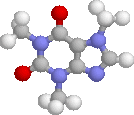

| Strona główna |
| Zespół |
| Badania |
| Aparatura |
| Seminaria |
| Publikacje |
|
Nasze konferencje |
|
Aktywność konferencyjna |
| Projekty |
| Programy |
|
Najbliższe wydarzenia |
| Linki |
| Kontakt |
|
|
|
od 2020-09-20 |

Authors: Czarnecka D., Ciesielska D., Jurga J., Fojud Z. |
Title: Brittle-ductile transition (BDT) recycled poly(ethylene-terethalate) - PET |
Source: Polymer Processing Society PPS-20 |
Year : 2003 |
The paper is concerned with the influence of reprocessing on molecular, rheological and mechanical properties of recycled polymers. The injection moulded specimens made of virgin and recycled material after 4-cycles and 6-cycles of processing poly(ethylene terephthalate) - PET EASTAPAK 9921 were investigated. The deformation and character of cracking (brittle-ductile) were determined from the analyse of stress-strain curves as a function of temperature. The brittle-ductile transition was characterised by the Ludwig- Davidenkov-Orowan (LDO) criterion. The mechanical behaviour was assessed in tensile testing at 250 mm/min and at various temperature. The results showed that the point of brittle-ductile transition (BDT) shifts to higher temperature and to lower stress. The character of fracture was taken using a TESCAN scanning electron microscope (SEM). The thermal properties of a virgin and recycled PET (glass transition, melting point and crystallinity) were characterized by differential scannning calorimetry (DSC). Solution viscosity measurements were carried out in an viscosimeter equipped with Ubbelhode capillaries. The investigation showed that the recycling polymers cause the degradation of polymer what is evidenced in intrinsic viscosity, average molecular weight and the degree of crystallinity recycled poly(terephthalate ethylene). This effect caused the increase of brittleness and reduced the load-carrying of products made from recycled polymers. |
|
(Pobrane: 2020-10-23) |
Zaktualizowano: podstrony 2025-12-13 / bazę danych: 2025-12-14 by Webmaster: Zbigniew Fojud